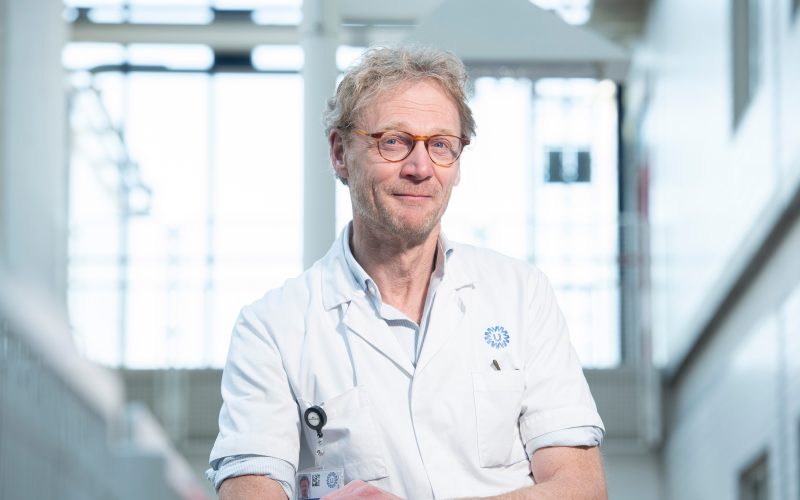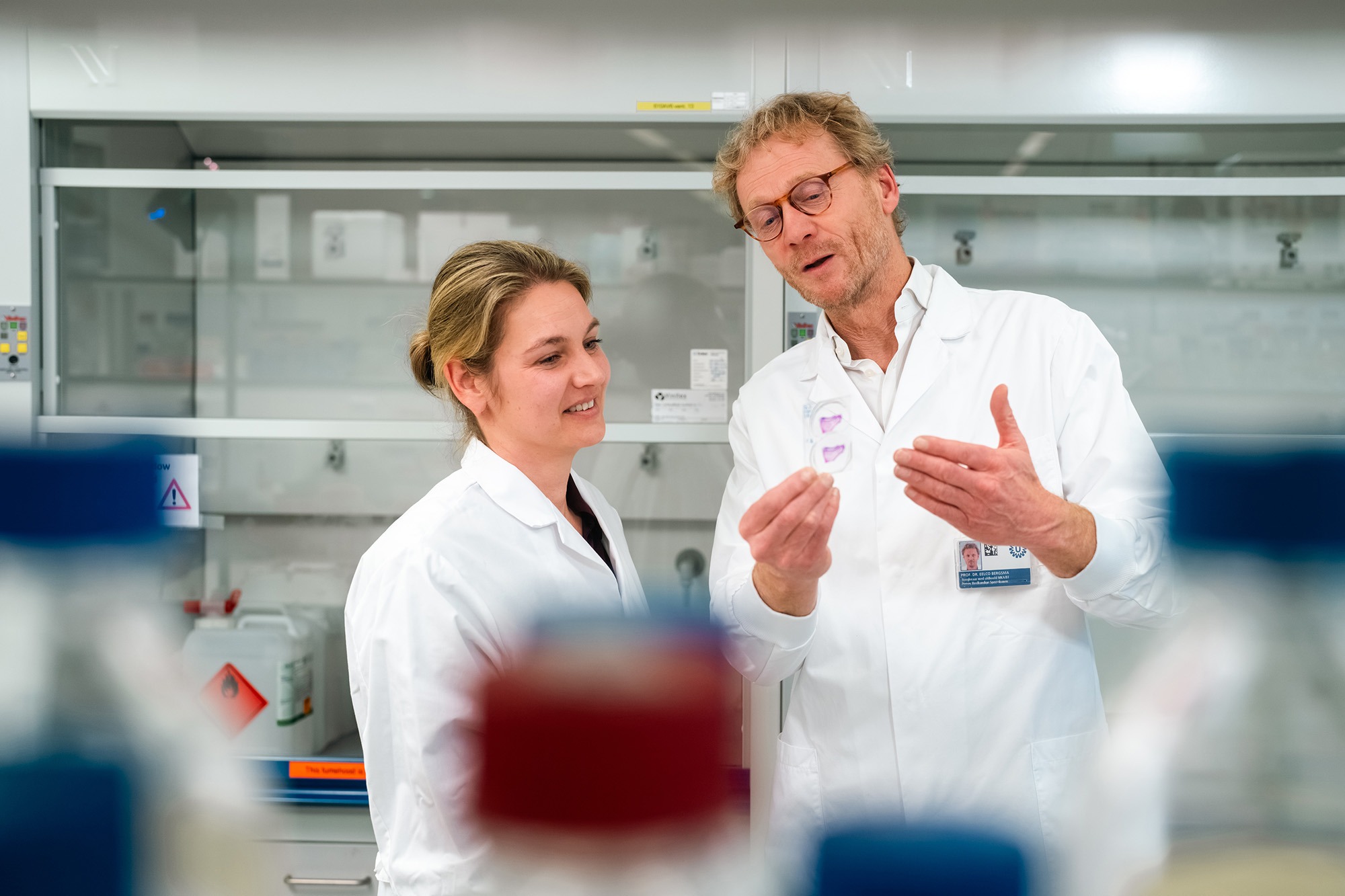How are we preparing maxillofacial surgery for the future? In his inaugural speech on November 12, Eelco Bergsma, professor and head of the department of Oral Diseases and Maxillofacial Surgery, looks ahead to the future of healthcare, education, and research. “We stand at a crossroad in healthcare.”
“We can either continue as we have always done – or we can decide to look ahead,” says Eelco Bergsma. Eelco advocates for clear choices in healthcare, with task shifting and collaboration between different healthcare institutions at the forefront. He also emphasizes the need for future-oriented education and calls for sustainable innovation in research.
The demand for care is growing, while the number of MKA surgeons is decreasing. More care with the same budget requires clear decisions. “The principle of ‘the right care at the right place’ helps with this: simple care goes to primary care (general practitioners, dentists), complex care to academic centers. This requires a redistribution of tasks and close cooperation between treatment centers, general hospitals, and academic hospitals. Education must also adapt, for example by offering more internships outside of academic centers,” explains Eelco.
At the same time, technological innovation offers opportunities to work smarter. Artificial intelligence (AI) can accelerate processes and improve care, but it requires preparation and clear frameworks. Eelco also emphasizes the changing safety situation, which calls for action. “The current times raise the question: How well are we as maxillofacial surgeons prepared for war-related facial trauma? I urge the field to collectively address this challenge, with UMC Utrecht showing leadership,” says Eelco.
The training to become an MKA surgeon is one of the longest paths in the hospital: one must become both a medical doctor and a dentist. This journey takes about 13 to 16 years. This requires prior consideration of the competencies a surgeon will need after those years. “The maxillofacial surgeon of the future will no longer operate only with a scalpel and drill, but also with a mouse and algorithm. That demands very different competencies. Therefore, the training curriculum must embrace digital skills.” Eelco believes AI applications must be integrated into education. “Training must teach young doctors to see AI as a ‘colleague’ who can enhance their work, but who can also contain biases and therefore requires human monitoring.”
“The maxillofacial surgeon of the future will no longer operate only with a scalpel and drill, but also with a mouse and algorithm.”
Alongside technological changes, Eelco also foresees drastic changes in the healthcare model, including the rise of remote care and shared decision-making. These developments will require changes in education so that tomorrow’s maxillofacial surgeon not only delivers better but also more efficient and sustainable care. “This can only happen if residents and trainers can and want to embrace constant change,” Bergsma emphasizes.
Scientific research within Eelco’s chair spans a wide range. Starting with research at the smallest level: which cells and signaling molecules play a role in bone healing? Research in this area brings us step by step closer to understanding and mimicking these processes. A promising development here is the 3D bioprinting of tissue. Significant progress is being made to create functional oral, maxillofacial tissue using living cells.
Another research focus is on congenital abnormalities, such as cleft lip and palate, where the effect of these conditions on speech in later life is being studied. There is also extensive oncological research on head and neck tumors, where surgical removal still plays a central role. To improve surgical outcomes, close collaboration between many different disciplines is necessary. For this reason, Eelco advocates for an innovation center where all these disciplines – care, technology, and science – come together under one roof.
Eelco Bergsma also advocates for a broader approach to research, one that places more emphasis on societal relevance and sustainability. “It is crucial to develop innovations that offer fundamental medical advancements but also make healthcare cheaper, more accessible, and greener. This will help sustain healthcare,” Eelco stresses.
Eelco Bergsma was appointed Head of the Department and Professor of Oral Diseases, Maxillofacial Surgery at UMC Utrecht in October 2024. In his position as a Clinical Researcher, Eelco combines patient care with research and education. He previously held the chair in Dentoalveolar Surgery as an extraordinary professor at the University of Amsterdam (UvA).

